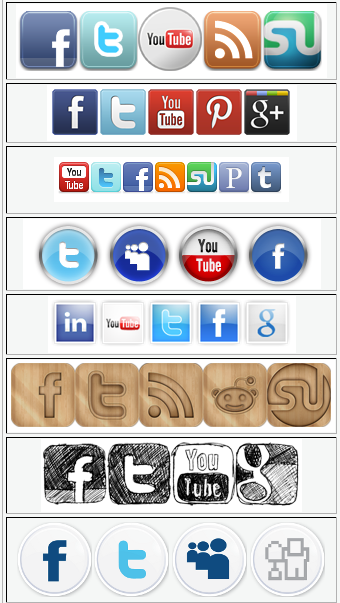Change, change, change. As we approach the year 2012, one trend that has remained steady (paradoxically) is the fact that our social media outlets are morphing at an incredible rate. These ever-changing networks keep in mind one of my personal favorite song titles “The Only Constant Is Change.”
I created my Facebook page in 2006 and my Twitter account in 2008. If you were to ask me now what they originally looked like, I would have to respond with a simple “I really have no idea.” Each and every social media outlet available to use right now has changed multiple times over the years.
Change Is (Mostly) Good
It is comforting to think that when Twitter or Facebook roll out a new interface, design, or feature that it’s usually for the better. Since they’re both massive global companies and are very influential in the everyday lives of millions of people, we like to think they have a team of the most skilled developers and researchers working on making our experiences better. And indeed there are large teams constantly toiling, trying to improve their product and make it stand out against the competition.
Of course, for better or worse, some of the changes rolled out by social media outlets don’t affect my personal interactions in the least. I haven’t done a video chat via Facebook; I don’t pay attention to the “Who to follow” suggestions on Twitter; I’ve never started a “Hangout” on Google+; and I haven’t checked out top news stories suggested to me by LinkedIn. However that doesn’t mean that many, many others don’t utilize these features or that client needs don’t drive me to learn about them.
The Backlash
Even if you don’t explore one network’s updated interface personally, you still will probably know that it has happened, and often through some other network. Nearly every time an update is implemented there is an absolute uproar by users complaining about the change. Feeds are clogged with statuses looking like “I hate new Twitter” or “Please petition to bring back old Facebook” gathering thousands of fans or Likes on a page. However a few days later, few individuals can really remember what the “old” version of Facebook used to look like.
Once I hear an update is on the way I try to keep an open mind about it. I usually fall into the “I don’t remember what the three-days-ago version looked like” category. The newest version of Twitter was a complete overhaul on the layout and it forced me to say out loud “I’m not so sure about this,” and now I’m completely adapted to the change.
The Rate of Change
It seems as if each and every time these social media networks update their looks, another thought that crops up is “Didn’t they just change everything last week?” Facebook has changed their look dozens of times. A month after they revamped the homepage, the new profile layout of Timeline is available. Right after Twitter updated to include who to follow and more complex “activity”, they completely jumbled everything around on their website and introduced “Connect.” Many people feel that if you blink you’re going to miss an entire stage of each platform’s look and functionality.
If you’re working in social media, or just like to stay ahead of the game with your personal account, you have to be ready to react. Many of these updates are pushed without notifying the user. It’s a reminder that in the Paid-Owned-Earned-Media framework, these are not ‘owned’ media networks. Pages, tabs, links, searches, anything can be removed by Facebook or Twitter overnight, leaving you scrambling the next day if you have important information displayed publicly.
This is the current state of our social media. It’s ever growing, constantly changing, and keeping many of us addicted to sharing and posting on the web. It’s best to keep an open mind, be ready for the worst, and try to adapt as soon as you can in order to stay on top of the game.
Related articles
- Users not happy with new Facebook changes – CNN
- Twitter Launches Major Redesign [VIDEO] – Mashable
- Redefining Public Relations (www.marketing-partners.com/conversate)





Interesting update: The Ever-Changing Face of Social Media | Change Conversations http://t.co/T4x6PjBh
The Ever-Changing Face of Social Media | Change Conversations http://t.co/X8TthIgN